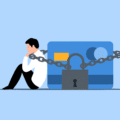The financial consequences of death can be an uncomfortable topic to think about. However, with planning, a person can make sure that their family and loved ones are taken care of when the time does come.
Say Goodbye to Unsecured Debts
Upon death, a person’s assets pass into a legal estate in his or her name, whether or not there is a prepared will. The value of the estate is calculated by adding up all of the assets and then subtracting liabilities.
Typical Assets
Cash
Stock Portfolios
Cars
Homes
Boats
Investments
Typical Liabilities
Mortgage
Credit Card Debt
Student Loans
Auto Debt
Unpaid taxes
The first step in handling the logistics of an estate includes paying off any liabilities. If assets are greater than liabilities, the excess cash will be distributed the will’s heirs. According to state law, if there is no will in place, assets will be passed on to the nearest living family members.
If a person dies, and their liabilities outweigh all of their assets, then all liabilities will be used to pay off creditors. Then, once the cash generated from all of the person’s assets is used up, creditors will have to write off any remaining balance. If debt consolidation programs were used by the deceased, these will be required to be paid off with any assets.
For example, if someone passes away with $10,000 in assets and $20,000 in unpaid liabilities (credit card debt), then the credit card companies will receive $10,000 from John’s estate, but they will have to write off the remaining $10,000 balance. This remaining balance of $10,000 will not pass on to John’s relatives or appointed heirs.
The only type of debt that can pass on after death is debt where a cosigner is involved. If a cosigner for a student loan, home, or other type of loan dies then the other cosigner is responsible for paying the remainder of the loan.
Liabilities and Assets
Oftentimes, a person will be leave a home or other significant asset to a loved one, but the person will also have liabilities that need paid off. In this situation, the heir may sell the home in order to pay off the remaining liabilities, or the person could opt to pay off the liabilities and keep the home. This is often the case if a person inherits a home that is paid off, but there is a small liability of a few thousand dollars for an unpaid credit card, etc. In this case, it makes sense to keep the home and pay the credit card off in cash.
With all liabilities paid off and a prepared will and testament, a person will be ensuring that their loved ones receive the maximum financial advantage during in an otherwise very difficult time.
~~~~~~~
witten by: Monique Rowe
Brought to you by Secureloanconsolidation.com



